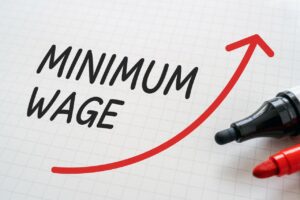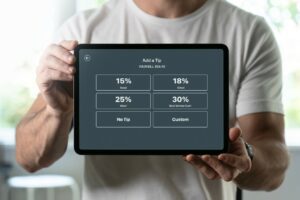Inflation is the ongoing increase in the average level of prices over time. It causes economic issues. People may not be able to afford their standard of living anymore. Or, they may not be able to plan for the future financially. Learn more about inflation and its effects below.
What is inflation?
Overall, inflation is the continuous rise in the average level of prices over a period of time. In more technical terms, it is the decline of purchasing power of a certain currency. Low inflation is good for the economy and your personal finances. It means money maintains its value. It also makes it easier for individuals to budget and plan financially.
What are its effects?
A low rate of inflation is normal for any economy. However, when inflation rates are high, problems arise. More specifically, when prices increase, money cannot buy what it used to. In other words, it is more expensive to afford your current standard of living. This makes it challenging for individuals, businesses and investors to predict their costs. Furthermore, when inflation is high, the economy is generally unstable and unpredictable.
Speak to one of our credit counselling experts and learn how you can get out of debt.
What is deflation?
Deflation is the opposite of inflation. It is the continuous decline in the average level of prices over time. Similarly, deflation can have a negative effect on the economy. In fact, it is usually a sign that there is something very wrong within the market. Deflation can cause lower wages and production. Over time, this downward spiral can cause entire markets to collapse.
What causes inflation?
Inflation is concerning for any active participant in the economy. You might be wondering why it happens and how to prevent it. There are two major things that cause it: demand-pull and cost-push inflation. Both of these effects tie back to fundamental principles of supply and demand. In addition, built-in inflation is another cause.
Demand-Pull Inflation
Demand-pull inflation happens when demand for goods or services increases. But supply remains the same. Therefore, pulling prices upwards. This effect can happen in a few ways.
In a healthy economy, entities tend to make more and more money. When this happens, purchasing power grows. This allows consumers to purchase more than they could before. Increasing competition arises for existing goods causing prices to rise further. Companies will also ramp up production to meet the greater demand. In some cases, demand-pull inflation can arise from products and services that suddenly become popular. For example, trends and fads.
Cost-Push Inflation
Cost-push inflation occurs when a limited supply of goods or services exists. But demand remains the same. This pushes price increases. Cost-push inflation occurs when an external event of some kind prohibits a company’s ability to produce. As a result, companies can charge more to keep up with consumer demand. This could be a natural disaster or sudden political change.
Built-In Inflation
This type of inflation relates to the idea that people expect current inflation rates to continue into the future. When the price of goods and services rises, people believe they will rise at a similar rate. Then, workers will demand more costs or wages to maintain their current standard of living. Their increased wages cause higher goods and services costs. So the spiral triggers it.
How is it measured?
Indices measure rates of inflation. Since the United States and the international economy are so large, it’s hard to measure inflation using one rate. Therefore, there are various ways to measure it. Let’s explore the top 3 measures of inflation below.
Consumer Price Index (CPI)
The U.S. Bureau of Labor Statistics calculates the Consumer Price Index (CPI) monthly. They calculate the amount based on the changes in prices consumers pay for goods and services. This index uses the “baskets of goods” method. This means it tracks changes in the costs of major categories people spend money on. They are food and beverages, housing, clothing, transportation, recreation, education and communication, medical care, and other goods and services.
Product Price Index (PPI)
The Product Price Index (PPI) is also prepared and published by the Bureau of Labor Statistics. This index tracks the changes in prices that companies receive for goods and services on a monthly basis. When companies face increases in necessary costs, higher prices are a result.
Personal Consumption Expenditures Price Index (PCE)
Similar to the CPI, the Personal Consumption Expenditures Price Index (PCE) also tracks how much consumers pay. However, the Bureau of Economic Analysis prepares and publishes the PCE. They consider a broader range of consumer expenditures, such as healthcare spending. The organization also updates the basket of goods they use to produce the PCE. They update it based on what consumers actually spend money on each month.
What is the inflation rate in Canada?
In 2020, the inflation rate in Canada was 0.72%. As of August 2021, the inflation rate was 4.1%. As you can see, there’s been a rapid jump over the last year. You might notice rising prices in your day-to-day life too. For example, groceries have gotten more and more expensive.
The Bank of Canada also has an inflation calculator you can use to calculate inflation.
How is inflation controlled?
Excessive inflation or deflation is not good for any economy. A country’s financial-regulation agency is responsible for keeping it under control. This is possible through monetary policy. This refers to the actions of the central bank or other governing bodies that determine the size and rate of money supply growth. In Canada, this agency is the Bank of Canada.
Keeping it in check is beneficial for everyone. Price stability helps everyone budget and afford their lifestyle. It helps both consumers and businesses maintain their standard of living in the long run.
Inflation and you
Right now, high inflation has become an issue in Canada. It is affecting many people’s personal finances. However, the economic policy issued by the Bank of Canada should put the rates back in check soon. If you’re having issues making ends meet, Consolidated Credit can help. Their team of financial advisors and specialists can help you navigate this challenging economic time.




